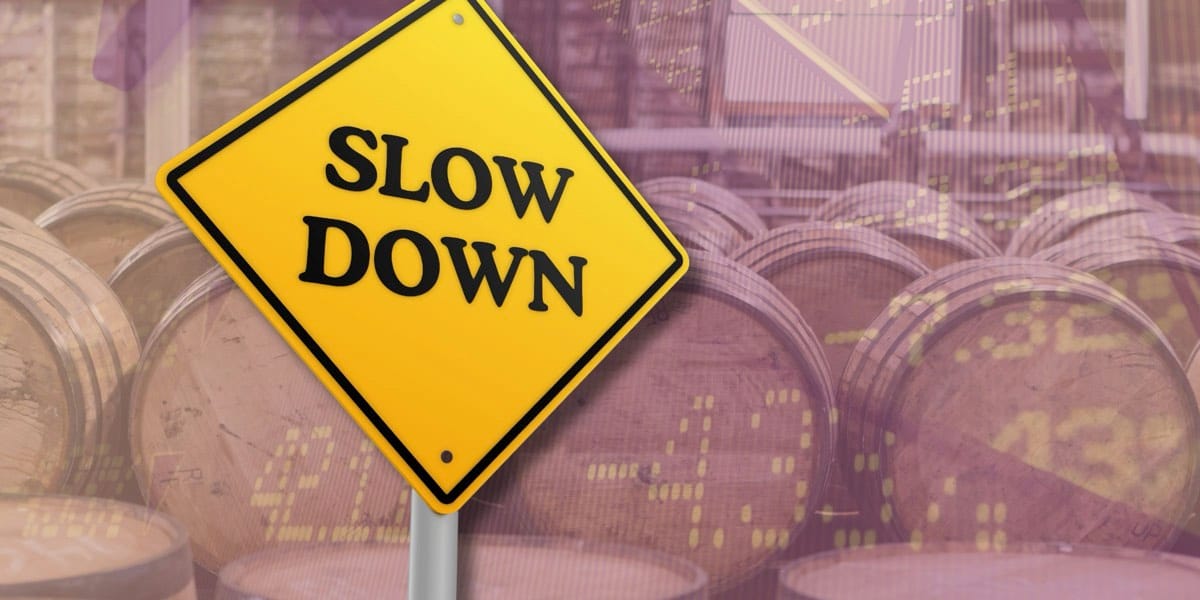Bourbon slowdown is officially and undeniably real
Whether viewed from the 10,000 foot perspective of a publicly traded global company or the grass roots of 'Merica, the story is the same. The whiskey industry that we’ve fallen in madly in love with—and sometimes hatefully mad at—is no longer the juggernaut it was 10 years ago.

Brown-Forman cuts signal whiskey industry slowdown is undeniable
On Jan. 14, a press release arrived bearing this headline: “Brown-Forman announces series of strategic initiatives for growth. Company to restructure globally, Louisville cooperage to close.”
Translation: Here come the cuts.
B-F said it will restructure its executive leadership team, implement a 12 percent reduction of its global workforce and close its Louisville-based Brown-Forman Cooperage.
The debate is over. The American whiskey industry slowdown has officially become undeniably real. Regardless of whatever causes you prefer to attribute to the ongoing sales decline and inventory pileups at distributors and retailers, when you see one of the world’s largest whiskey makers cutting jobs (which means reduced production) and closing its last of two cooperages (the other was sold to Independent Stave Co. last year), you know the situation isn’t pretty. Not DEFCON 1 by any stretch, but certainly some number on that multicolored scale reflects this concerning news.

